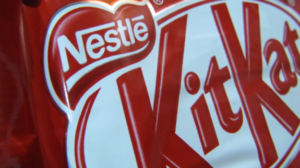By: Mariam Jaffery
If you have any leftover Halloween candy sitting around, there is a good chance that some of it potentially came from Nestlé, one of the largest food makers in the world.[1] Despite the brand’s global recognition, its reputation among human rights and labor rights organizations has been less acclaimed: the company has faced long-standing criticism for the use of child labor in its cocoa supply chains.[2] Now the company may have to face these allegations in U.S. courts, after the Ninth Circuit Court of Appeals revived a lawsuit against the U.S. unit of Nestlé S.A. and Cargill Co. by a group of former child slaves, seeking accountability for human rights violations on Ivory Coast cocoa farms.[3] The plaintiffs alleged that they were forced to work on these farms “for up to fourteen hours a day without pay” and “witnessed the beating and torture of other child slaves who attempted to escape.”[4] The claim accused Nestlé of “aiding and abetting” slave labor under the Alien Tort Statute (hereinafter “ATS”), which is a federal law that allows non-citizens to bring civil action in U.S. courts for torts committed in violation of international law.[5]
The case has a long history in the U.S. court system, as it was first brought by the plaintiffs in 2005. It haunted the company through 2016, as it made its way all the way up to the U.S. Supreme Court.[6] A California district court also dismissed the lawsuit twice, concluding that the ATS could not be extraterritorially applied since it did not concern domestic business conduct.[7]
The Ninth Circuit’s panel of judges reversed the district court’s dismissal and are allowing the case to move forward, stating that the claims could proceed on the basis that the actions were allegedly perpetuated from its U.S. headquarters, thus placing them under the jurisdiction of U.S. courts.[8] While prior Supreme Court rulings held that the ATS could not be extraterritorially applied,[9] the Ninth Circuit interpreted the Court’s precedent as still allowing the ATS to apply to claims made which “touch and concern” the territory of the U.S..[10] Applying the “touch and concern” test created by the Supreme Court, the Ninth Circuit stated that the defendants’ alleged activities constituted domestic conduct.[11]
This outcome potentially has major consequences not just for Nestlé, but for U.S. companies operating a supply chain internationally. It could prevent corporations from being able to escape the consequences of their actions simply due to the location of their conduct.[12] Additionally, it would offer injured plaintiffs the opportunity to recover for harms inflicted against them, whereas they might otherwise be left without recourse.[13] It is still unclear whether Nestlé actually will be held liable for its alleged responsibility in this case. To the company’s credit, it has been taking an active role to monitor its supply chains more closely in an effort to eradicate forced labor.[14] However, in an era where corporate social responsibility is becoming something that consumers increasingly demand,[15] the Ninth Circuit’s decision allows another avenue to demand accountability and ethical behavior from the corporate world. It will be interesting to see if this legal battle, going on for more than a decade, will finally force Nestlé to answer for its past business practices.
[1] Maggie McGrath, World’s Largest Food and Beverage Companies 2018: Anheuser-Busch, Nestle and Pepsi Top the List, Forbes (June 6, 2018, 5:50 PM), https://www.forbes.com/sites/maggiemcgrath/2018/06/06/worlds-largest-food-and-beverage-companies-2018-anheuser-busch-nestle-and-pepsi-top-the-list/#4bdf00181b08 (stating that Nestlé was the #2 food and drink company in the world, according to the Forbes Global 2000).
[2] Joe Sandler Clarke, Child Labour on Nestlé’s Farms: Chocolate Giant’s Problems Continue, The Guardian (Sept. 2, 2015, 9:34 AM), https://www.theguardian.com/global-development-professionals-network/2015/sep/02/child-labour-on-nestle-farms-chocolate-giants-problems-continue (covering a report by the Fair Labor Association that found child labor at 7% of cocoa farms visited, despite the company’s promise to prohibit such practices in its supply chain).
[3] Tina Bellon, U.S. Appeals Court Revives Nestle Child Slavery Lawsuit, Reuters (Oct. 23, 2018, 3:41 PM), https://www.reuters.com/article/us-usa-court-nestle/u-s-appeals-court-revives-nestle-child-slavery-lawsuit-idUSKCN1MX2UM.
[4] Doe v. Nestle, S.A., No. 17-5545, 2018 U.S. App. LEXIS 29846, at *8 (9th Cir. Oct. 23, 2018).
[5] Id. at *2.
[6] Bellon, supra note 3 (noting that the Supreme Court rejected the companies’ request to throw out the suit).
[7] Nestle, 2018 U.S. App. LEXIS 29846, at *7.
[8] Nestle Sued for Perpetuating Child Slavery Overseas From Headquarters in US, RT (Oct. 24, 2018, 9:21 AM), https://www.rt.com/business/442099-nestle-child-slavery-lawsuit/.
[9] See, e.g., Kiobel v. Royal Dutch Petroleum Co., 569 U.S. 108, 124-25 (2013) (applying a “presumption against extraterritoriality” to ATS claims, and saying that relevant conduct must be more than mere corporate presence outside the United States to break such a presumption).
[10] Nestle, No. 17-5545 at *10.
[11] Id. at *13 (“In sum, the allegations paint a picture of overseas labor that defendants perpetuated from headquarters in the United States . . . We thus hold that foregoing narrow set of domestic conduct is relevant to the ATS’s focus.”).
[12] See Amanda H. Humpreville, If the Question is Chocolate-Related, the Answer is Yes: Why Doe v. Nestle Reopens the Door for Corporate Liability of U.S. Corporations Under the Alien Tort Statute, 65 Am. U. L. Rev. 191, 197 (2015) (arguing that the Ninth Circuit’s ATS approach would allow corporations to be held liable for violations of international norms).
[13] Id. at 229–31 (“[W]ithout the possibility of recovery under the ATS, there are few alternative avenues of recovery for plaintiffs to pursue, and these sparse options would provide only limited success,”).
[14] Joe Sandler Clarke, A Chat With Nestlé’s Former COO About Cocoa and Child Labor, Vice (Oct. 8, 2015, 3:10 PM), https://www.vice.com/en_us/article/qbxwzx/jose-lopez-nestle-022.
[15] Kelsey Chong, Millennials and the Rising Demand for Corporate Social Responsibility, Berkeley Hass Cal. Mgmt Rev.: Blog (Jan. 20, 2017), https://cmr.berkeley.edu/blog/2017/1/millennials-and-csr/.



